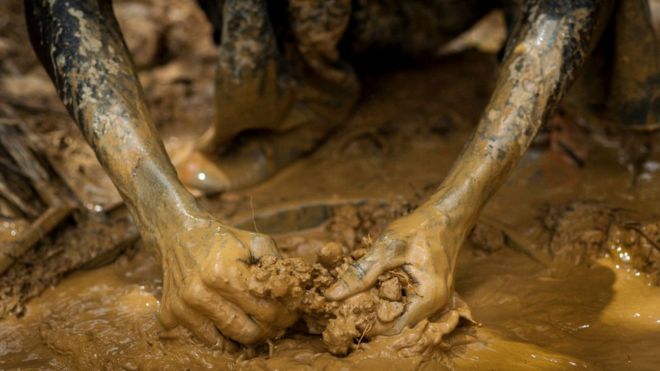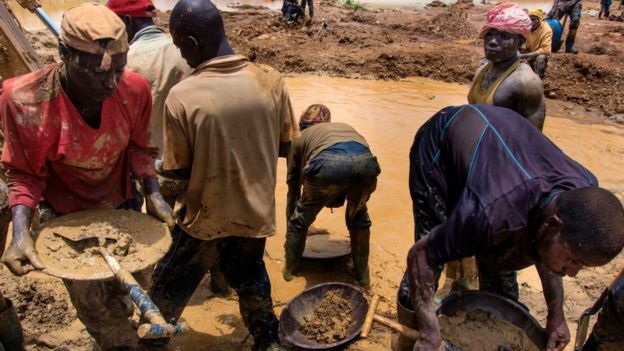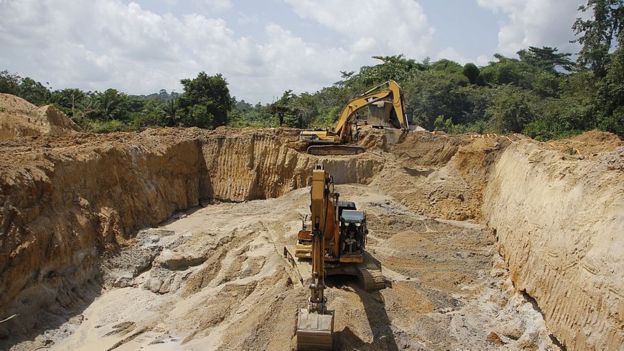 In our series of letters from African journalists, veteran Ghanaian journalist Elizabeth Ohene explains why the notoriety of a new word spells problems for the nation.
In our series of letters from African journalists, veteran Ghanaian journalist Elizabeth Ohene explains why the notoriety of a new word spells problems for the nation.
Every time we create a new word to describe a phenomenon here in Ghana, you can be sure we are in trouble. The newly popular word, "galamsey", is not exactly new but it was not a word in everyday use either.
Today it is a word that dominates everything; newspapers, the radio, television and every conversation.
A war has been declared against "galamsey". People have been demonstrating against "galamsey". There is of course #SayNoToGalamsey.
But what does "galamsey" mean?
It means the illegal small-scale mining of gold. It also means moonlighting, but that is another story.
Golden stool
The word, as I understand it, has been in use since the first English-speakers became involved in mining the huge gold deposits in what is now Ghana.
The word entered our lexicon in the 1920s when the first laws about gold mining were made during the colonial period.

"Galamsey", apparently is a corruption of "gather and sell", which was the description of the traditional method of mining for gold made by the first foreign big-scale miners.
The country of my birth, Ghana, used to be known as Gold Coast, and for a good reason - there is a lot of gold in the bowels of our land.
Indeed often, you need not go all the way into the bowels of the earth, the gold can be found just beneath the surface.
For centuries, we dug for gold and the mineral features in all of our cultural activities. The king of the Asantes sits on a solid golden stool.
No self-respecting young man can get married without giving a set of gold jewellery to his bride.
But the digging for gold was an activity undertaken by few people and there were strict rules about the care of the environment. Rivers were sacred and you treated them with respect.
High-tech
Anybody who follows the news in Ghana would know that we have a full-scale crisis on our hands as a result of "galamsey".
It is no longer "small-scale" - the digging is no longer done with pickaxes and hoes and we no longer wash the dug-up earth and river sediments with the water from the rivers to get gold.
No comments:
Post a Comment